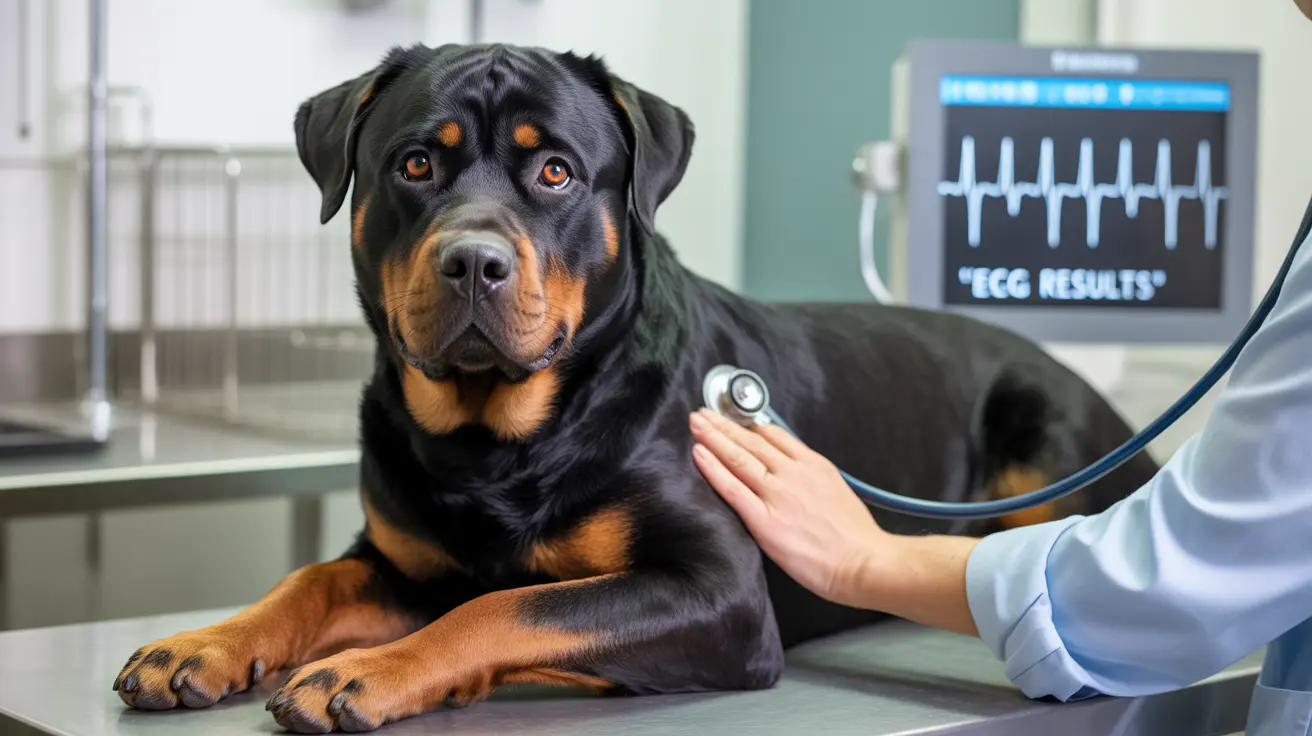Rottweiler owners and potential adopters need to understand the unique health challenges these loyal companions face. From musculoskeletal conditions to heart problems, Rottweilers are predisposed to several health issues that require vigilant monitoring and proactive care. This comprehensive guide explores the most common Rottweiler health concerns and provides expert advice on prevention and management.
Common Musculoskeletal Disorders in Rottweilers
Hip and elbow dysplasia affect a significant portion of the Rottweiler population, with studies showing approximately 22% of these dogs developing hip dysplasia. Males are particularly susceptible to elbow dysplasia, which often leads to degenerative joint disease and arthritis.
Regular screening through X-rays and early intervention can help manage these conditions. Weight management is crucial, as excess pounds put additional stress on already compromised joints.
Cardiovascular Concerns and Monitoring
Subaortic stenosis (SAS) stands out as a primary cardiac concern in Rottweilers. This congenital heart defect can cause serious complications, including sudden cardiac death in severe cases. Regular cardiac screenings, particularly in breeding dogs, are essential for early detection and management.
Cancer Risk and Prevention
Cancer accounts for roughly 33% of Rottweiler deaths, with bone cancer (osteosarcoma) and lymphoma being particularly prevalent. Research suggests that timing of spaying and neutering may influence cancer risk, making it crucial to discuss reproductive surgery timing with your veterinarian.
Skin and Ear Problems
About 11% of Rottweilers experience skin conditions, with males being more prone to hot spots and pyotraumatic dermatitis. Ear infections affect over 6% of the breed, emphasizing the importance of regular cleaning and monitoring.
Managing Weight and Exercise
Obesity affects approximately 7% of Rottweilers and can exacerbate joint problems and increase diabetes risk. A structured exercise program and carefully monitored diet are essential for maintaining healthy weight and joint function.
Genetic Testing and Breeding Considerations
Responsible breeding practices include comprehensive genetic testing for known hereditary conditions. This includes screening for hip and elbow dysplasia, cardiac issues, and eye disorders. Breeding dogs should participate in relevant health schemes to reduce the transmission of genetic health problems.
Frequently Asked Questions
What are the most common genetic health issues affecting Rottweilers, and how can they be screened before breeding?
The most common genetic health issues in Rottweilers include hip and elbow dysplasia, heart conditions like subaortic stenosis, and certain eye disorders. Screening involves hip and elbow X-rays, cardiac evaluations, and genetic testing for specific conditions. Responsible breeders should provide documentation of these health screenings.
How can I recognize and manage hip and elbow dysplasia symptoms in my Rottweiler?
Early signs include difficulty rising, reluctance to exercise, lameness, and abnormal gait. Management involves weight control, appropriate exercise, joint supplements, and in some cases, surgical intervention. Regular veterinary check-ups can help monitor progression and adjust treatment plans.
What preventive measures can I take to reduce my Rottweiler's risk of osteosarcoma and other cancers?
Regular veterinary check-ups, maintaining healthy weight, and discussing optimal timing for spaying/neutering are crucial. Early detection through routine physical examinations and prompt investigation of any lumps or lameness can improve outcomes.
How do heart conditions like subaortic stenosis affect Rottweilers, and what screening is recommended?
Subaortic stenosis can cause exercise intolerance, fainting, and in severe cases, sudden death. Regular cardiac evaluations, including echocardiograms and auscultation by a veterinarian, are recommended, especially for breeding dogs.
What lifestyle changes help prevent musculoskeletal injuries such as cranial cruciate ligament rupture in Rottweilers?
Maintaining healthy weight, providing appropriate exercise without overexertion, using joint supplements as recommended by your vet, and avoiding high-impact activities during growth periods can help prevent musculoskeletal injuries.
Conclusion
Understanding and monitoring Rottweiler health issues is crucial for ensuring these beloved dogs live long, healthy lives. Regular veterinary care, appropriate screening, and proactive health management can help prevent or minimize many common health problems. Working closely with veterinary professionals and staying informed about breed-specific health concerns will give your Rottweiler the best chance at a healthy life.






